Alright, movie lovers, buckle up! We’ve all been there: eagerly awaiting a blockbuster film, soaking in the trailers, hyping it up with our friends, only to walk out of the theater feeling… deflated. It’s like a jump scare, but for your soul. Sometimes, it’s not the whole movie that crashes and burns; it’s one, singular, absolutely cringey plot twist that pulls the rug right out from under all that promise and potential. It truly feels like a betrayal, doesn’t it?
In the wild, wonderful world of Hollywood, where massive budgets and star-studded casts often promise cinematic gold, there’s always a lurking danger. One wrong narrative turn, one baffling revelation, or even just one ill-conceived creative decision can turn a highly anticipated flick into a forgettable flop – or worse, a legendary facepalm moment that lives on in internet infamy. It’s the kind of thing that makes you want to tweet “Spoiler Alert: The plot twist IS the movie being bad!”
Today, we’re diving deep into some of the most talked-about films – some fresh out of the gate, others on the horizon – to dissect those narrative curveballs that either already blindsided us, or are just waiting in the wings to pull a fast one. We’re talking about the moments that made us gasp, groan, or just plain question everything we thought we knew. So grab your popcorn, and let’s unravel these cinematic conundrums together, because sometimes, the most shocking twist isn’t who the killer is, but how badly the story decided to mess itself up!
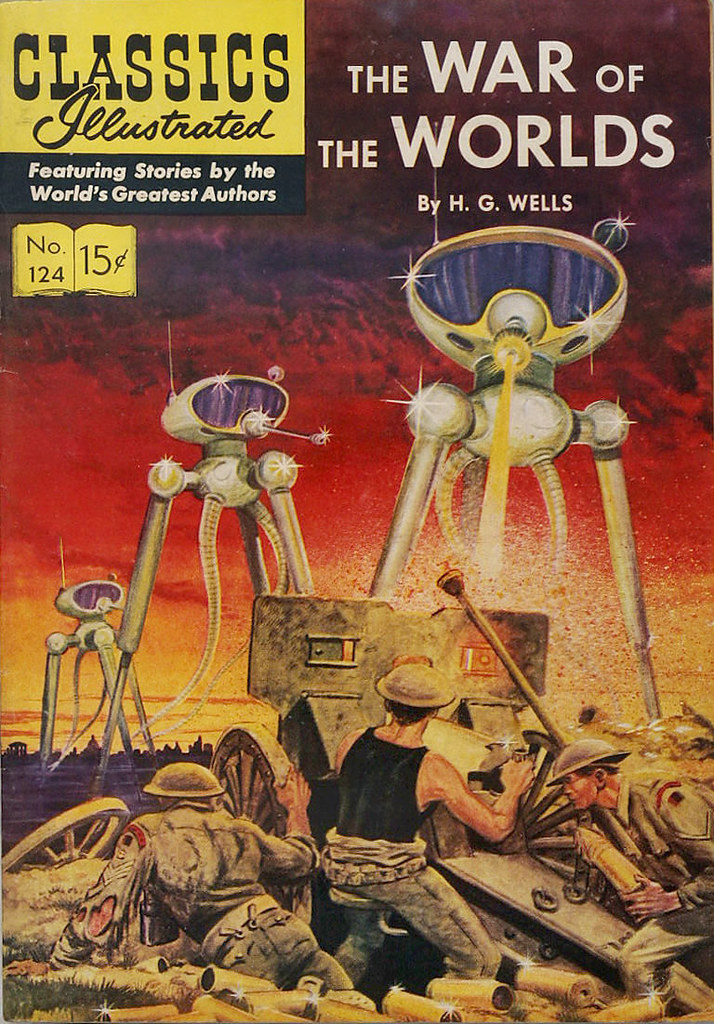
1. **War of the Worlds (2025)**
Okay, so let’s kick things off with a film that seemingly went from blockbuster potential to critical car crash in warp speed. “War of the Worlds” (2025) came roaring onto the scene, but according to the critics, it landed with a resounding thud, earning a dismal 4% consensus. Ouch. The consensus states it was “Stranding Ice Cube in an inept screensaver with wall-to-wall product placement,” and that it “will make audiences consider giving peace a chance instead.” Seriously, a 4%? That’s not just bad, that’s historically low.
Now, while the critics didn’t explicitly shout “terrible plot twist!”, that description of “inept screensaver” and “wall-to-wall product placement” might as well be one. Imagine waiting for a gripping alien invasion tale, full of tension and high stakes, only for the big reveal to be… a slideshow of poorly rendered CGI and an endless parade of brand logos. It’s not a narrative twist in the traditional sense, but it’s a thematic one – the twist being that the film prioritizes advertising over actual storytelling, completely subverting audience expectations for a thrilling sci-fi experience.
This isn’t just a minor misstep; it’s a complete narrative derailment. The premise of an alien attack is ripe for compelling drama, but when the film becomes an “inept screensaver” for products, the real “twist” is realizing the filmmakers cared more about securing sponsorships than crafting a coherent, engaging story. Ice Cube deserves better, and frankly, so do we. It’s a plot twist where the plot itself becomes an advertisement, and that, dear readers, is a truly terrible, ruining twist for any film, let alone a “War of the Worlds” adaptation.
Read more about: Wait, Who Was That Again? 10 Movie Leads We Totally Forgot Were Even In Those Films!

2. **The Conjuring: Last Rites (2025)**
Next up, we have “The Conjuring: Last Rites” (2025), a film that promised a climactic conclusion to a beloved horror saga. With Vera Farmiga and Patrick Wilson purportedly in their final outing as the iconic Warrens, expectations were sky-high. Fans were ready for a terrifying, emotional send-off that would tie up years of paranormal investigations with a neatly spooky bow. However, the critics had other ideas, landing it with a 56% consensus and noting that it “underwhelms as a climactic chapter for The Conjuring but solidly upholds the franchise’s spooky standards.”
Here’s where the “terrible plot twist” element sneaks in. While it “solidly upholds the franchise’s spooky standards” – meaning it probably still had its jumps and scares – the key phrase is “underwhelms as a climactic chapter.” For a finale, especially one that’s meant to be the “last rites” for its central characters, simply upholding standards isn’t enough. The twist here isn’t a demon suddenly being a friendly ghost; it’s the narrative decision to play it safe, to offer more of the same without the narrative punch required for a true climax.
The “terrible twist” for “Last Rites” isn’t a sudden reveal about the Warrens’ past, but the revelation that the film simply lacks the narrative ambition to deliver a satisfying end. It’s a twist of anti-climax, a narrative choice that promises a grand farewell but delivers a gentle, almost timid, wave goodbye. When a film’s biggest twist is that it doesn’t really have one, or that it pulls its punches when it should be going for the knockout, it can feel just as ruining as any shocking, poorly written narrative left turn. Fans wanted a definitive ending, and the twist was that they got an echo instead.
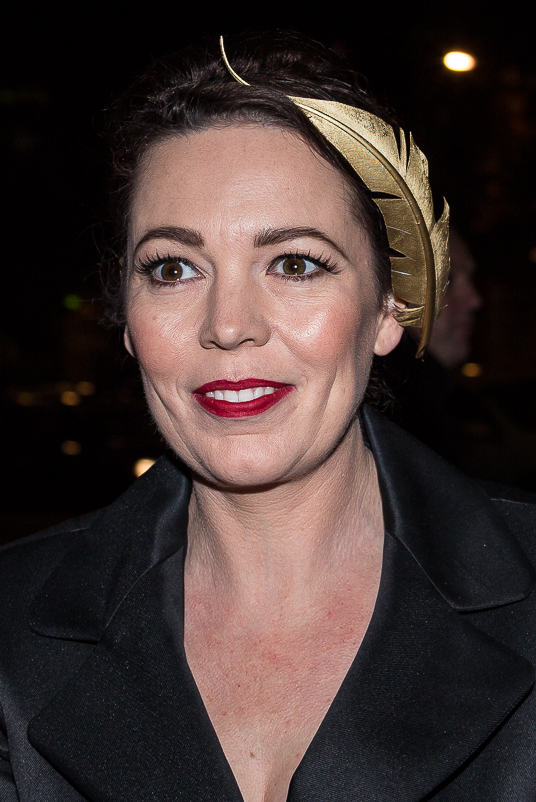
3. **The Roses (2025)**
Moving on to something a little different, “The Roses” (2025) starring the incredible Olivia Colman and Benedict Cumberbatch, sounded like a dream team. Imagine these two trading barbs in a film, the synopsis hinting at a picture-perfect couple whose lives seem easy, only for… well, the title “The Roses” itself might imply a thornier side. The critics, however, pointed out a significant narrative challenge, giving it a 65% consensus and stating: “The Roses’ blend of broad comedy and dark satire makes for an uneasy marriage, although watching Olivia Colman and Benedict Cumberbatch trade barbs is a treat onto itself.”
The “terrible plot twist” here isn’t some shocking secret affair, but rather a stylistic one. The “uneasy marriage” between “broad comedy and dark satire” is the narrative decision that could ruin the film’s cohesion. It’s like a comedic setup suddenly veering into grim social commentary without proper transition, leaving audiences disoriented. You expect either belly laughs or a biting critique, but the twist is that you get both, poorly blended, creating a tonal whiplash that prevents either genre from truly shining.
It’s a bold narrative choice to mix such disparate tones, but when it results in an “uneasy marriage,” it acts as a self-sabotaging plot twist. The brilliance of Colman and Cumberbatch might keep you entertained, but the narrative itself plays a trick on you, constantly pulling you between two emotional extremes without allowing you to settle. This tonal confusion becomes the film’s ruining element, a narrative twist that, despite the stellar cast, makes the viewing experience feel less like a cohesive story and more like a tug-of-war where no one truly wins.

4. **The Threesome (2025)**
Ah, the rom-com. A genre known for its predictable yet comforting tropes, but sometimes, even these can be ruined by a narrative twist that just… wobbles. “The Threesome” (2025) falls into this category, receiving a 76% consensus. While generally positive, the critics pointed out its Achilles’ heel: “A bittersweet rom-com that occasionally waffles as much as its characters in how mature it wants to be, The Threesome balances out into a sweetly shaggy film with standout performances from Zoey Deutch and Ruby Cruz.”
The “terrible plot twist” here isn’t an unexpected partner or a sudden genre shift. Instead, it’s the narrative’s inability to commit – it “occasionally waffles as much as its characters in how mature it wants to be.” This isn’t just a character flaw; it’s a structural one. The film struggles to decide if it’s a lighthearted romp or a serious exploration of complex relationships. This indecision becomes the frustrating twist, preventing the audience from fully investing in either aspect of the story.
Imagine a rom-com that hints at a profound exploration of modern relationships, only to revert to a goofy gag every time it gets too serious. That constant back-and-forth, that lack of narrative conviction, is the ruining twist. It keeps the film from achieving its full potential, turning what could have been a deeply resonant experience into something merely “sweetly shaggy.” The twist is the film itself struggling with its identity, leaving viewers with a pleasant, but ultimately unfulfilling, ride.
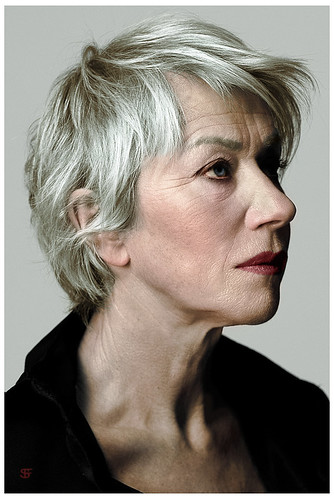
5. **The Thursday Murder Club (2025)**
Who doesn’t love a cozy mystery, especially when it’s based on an international bestselling novel and stars legends like Helen Mirren and Pierce Brosnan? “The Thursday Murder Club” (2025) certainly had all the ingredients for a delightful cinematic outing. The critics agreed, mostly, with a 78% consensus. Yet, even with such high praise, there’s a tiny little narrative “twist” that could slightly diminish its shine: it’s described as “Cozy as an undemanding beach reach and just as slight, this starry murder mystery leverages its terrific troupe of actors to nostalgic effect.”
The “terrible plot twist” here isn’t a shocking revelation about the killer or a betraying club member. Instead, it’s the subtle narrative decision to make the film “just as slight” as an “undemanding beach read.” While that might sound appealing to some, for a blockbuster adaptation, it can feel like a missed opportunity. The twist is that the film, despite its star power and intriguing premise, never truly delves deeper, never challenges its audience, and opts for comfort over complexity.
It’s a narrative choice that prioritizes mild entertainment over a truly gripping mystery. The collective talent of Helen Mirren, Pierce Brosnan, Ben Kingsley, and Celia Imrie is undoubtedly a treat, yet the “slightness” acts as a gentle, almost imperceptible twist that keeps the film from truly soaring. It offers a pleasant diversion, but the twist is that it leaves you wanting a bit more substance, a deeper mystery that truly exercises the mind, rather than just tickling it with nostalgia. It’s a twist of untapped potential, which, for a mystery, can feel a little underwhelming.
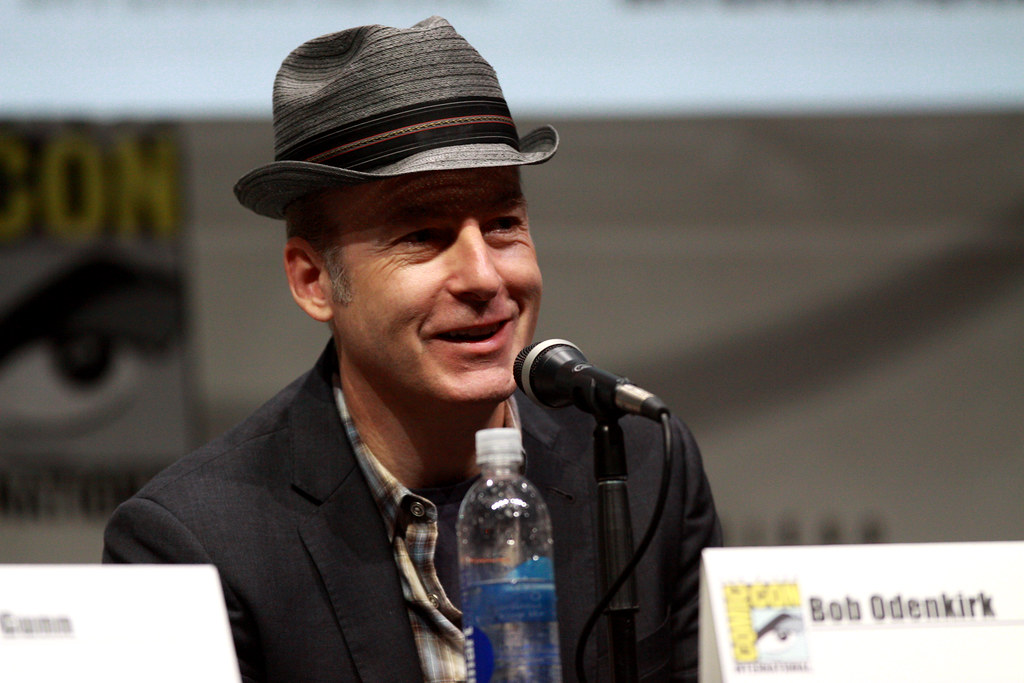
6. **Nobody 2 (2025)**
Our final film for this section is “Nobody 2” (2025), a sequel to the surprising action hit that proved Bob Odenkirk is much more than just Saul Goodman. Fans were hyped to see workaholic assassin Hutch Mansell back in action, especially as he tries to enjoy a much-needed vacation. The film garnered a decent 78% consensus, with critics saying: “While frumpy action-hero Hutch Mansell tries to enjoy a nice vacation, Bob Odenkirk works overtime to make Nobody 2 a diverting sequel that measures up admirably to the original.”
Now, where’s the “terrible plot twist” in that, you ask? It’s subtle, but it’s there in the phrase “Bob Odenkirk works overtime to make Nobody 2 a diverting sequel.” This isn’t a dig at Odenkirk’s undeniable talent or commitment – he’s clearly giving it his all! But the narrative twist is that the material itself might be requiring that “overtime.” It suggests that the script, the story, or the overall concept for the sequel might not be as organically strong or fresh as the original, forcing the lead actor to almost single-handedly elevate the film.
The twist is that the narrative framework of “Nobody 2” might be leaning too heavily on its star, rather than crafting an equally compelling and self-sufficient plot. It’s a narrative decision that, while leading to a “diverting sequel,” implies a struggle, a ‘twist’ where the story isn’t quite living up to its predecessor’s effortless charm. When your star has to “work overtime” just to make the sequel “measure up,” it suggests the underlying narrative might have delivered a twist of uninspired retread, or a plot that demands too much heavy lifting from its beloved lead. It’s still good, but that extra effort hints at a narrative that’s not quite as effortlessly brilliant.
Alright, cinephiles, if you thought we were done uncovering those sneaky cinematic curveballs, think again! We’re not just talking about your run-of-the-mill, predictable endings here. Oh no, we’re diving back into the glorious mess of Hollywood, where even the most promising premises can get tangled up in a narrative knot that leaves us collectively scratching our heads.
Get ready, because we’re continuing our epic journey through blockbusters that, despite all their potential, stumbled at the finish line thanks to one truly baffling narrative choice. Sometimes it’s a creative decision that just doesn’t land, other times it’s a stylistic choice that backfires spectacuarly. So, let’s peel back the curtain on another six films that delivered a plot twist so bad, it practically became the main event!

7. **Highest 2 Lowest (2025)**
First up on this leg of our journey is “Highest 2 Lowest” (2025), a film that brought together the iconic duo of Spike Lee and Denzel Washington. Now, that’s a pairing that screams cinematic gold, promising a vibrant and contemporary take on a classic. The critics were generally on board, giving it an 86% consensus and praising it for “vibrantly contemporary results” and being a “swaggering thriller that lovingly showcases New York City.” Sounds pretty fantastic, right?
But here’s the rub, the subtle narrative twist that might just make you go “hmm.” The consensus specifically mentions a “remix” of a classic. While a remix can be brilliant, it also carries the inherent risk of alienating those who adored the original. What if, in the quest for contemporary flair, the essence or the quiet power of the classic source material gets lost in the “swagger”? The twist could be that the film, in its efforts to be fresh and bold, inadvertently over-styles itself, leading to a narrative that prioritizes flash over substance for some viewers.
Imagine sitting down for a Spike Lee joint, anticipating his signature biting commentary and nuanced character work, only to find the film’s undeniable “swagger” becomes so pronounced it almost feels like a character in itself. The narrative choice to be so vibrantly contemporary and swaggering might, for some, become the plot twist that makes the story feel less grounded and more like a high-octane fashion show. It’s a delicate balance, and when the style potentially eclipses the story’s heart, that’s a plot twist that can derail even the best intentions.
It’s the kind of thing where you appreciate the craft and the performances, but leave the theater wondering if the “remix” was truly necessary, or if it obscured the very thing that made the original so compelling. A great remix should enhance, not overshadow. And when it walks that line a little too closely, it becomes a fascinating, albeit potentially frustrating, narrative twist that keeps the film from being universally adored, even by the most die-hard fans of Lee and Washington.
Read more about: The Dragon’s Ascent: Unpacking China’s Modern Military and Expanding Global Reach by 2025

8. **The Naked Gun (2025)**
Hold onto your hats, because next we’re talking about “The Naked Gun” (2025), a film attempting to revive a beloved, daffy sense of humor with none other than Liam Neeson in the iconic role of Frank Drebin. The critics were surprisingly charmed, awarding it an 88% consensus, noting that Neeson’s “gravelly gravitas” was a “perfect fit for Frank Drebin’s deadpan buffoonery,” and that it “revives the original trilogy’s daffy sense of humor like it never went out of style.”
Now, that last part, “like it never went out of style,” is where our “terrible plot twist” could be hiding in plain sight. While nostalgic for some, for others, the very act of reviving a humor style from a bygone era, without significant modernization or a fresh twist, could feel less like a revival and more like a dated retread. The twist isn’t that the jokes aren’t funny, but that their delivery or context might feel slightly out of sync with contemporary comedic sensibilities, making the film feel less timeless and more… time-trapped.
Furthermore, the “gravitas” of Liam Neeson, while lauded as a perfect fit, could also be a subtle narrative misdirection. The original films thrived on Leslie Nielsen’s masterful ability to be utterly clueless while maintaining a straight face. Neeson’s gravitas, while excellent for deadpan, might lean too heavily into seriousness for a franchise built on pure, unadulterated slapstick and absurdity. The twist could be that his seriousness, while comedic, inadvertently grounds the film *too much*, pulling away from the sheer, joyful chaos that defined its predecessors.
So, while the critics generally praised it, the “terrible plot twist” here is twofold: either the humor, in its faithful revival, feels a touch too dated for a modern audience, or Neeson’s inherent dramatic weight, however well-played, subtly shifts the comedic tone in a way that fans of the original might find jarring. It’s a testament to how even well-executed homage can become its own unexpected narrative hurdle, preventing the film from truly connecting with everyone in the way the originals did.
Read more about: Pamela Anderson: From Iconic Bombshell to Authentic Icon – Her Timeless Beauty Evolution Unveiled

9. **Together (2025)**
Time to get a little gnarly with “Together” (2025), starring the real-life couple Dave Franco and Alison Brie. Their metatextual casting was praised for adding an “extra sinew of authenticity,” with the film being described as “a body horror that’s as emotionally sticky as it is memorably gnarly,” earning a solid 90% consensus. On the surface, this sounds like a win: a body horror with depth and genuine emotion!
But here’s where the narrative “twist” gets a little… sticky. The phrase “emotionally sticky” paired with “memorably gnarly” presents an interesting, and potentially divisive, blend. For some body horror aficionados, the genre is all about the visceral, the shocking, the grotesque. The “emotional stickiness” might be a welcome addition, but for others, it could feel like a narrative drag, slowing down the horror elements or making the experience more uncomfortable in an unintended way. The twist is that the film might deliver a different kind of horror than expected.
Imagine settling in for a good old-fashioned, unsettling body horror, ready for the jumps and the squirm-inducing visuals, only to find yourself deeply immersed in a relationship drama that weighs heavily on your soul. The “emotionally sticky” aspect could be a brilliant narrative choice for some, but for those seeking pure genre thrills, it might feel like a slow-burn detour that the plot takes, shifting focus from the external horrors to the internal ones, blurring the lines in a way that frustrates specific audience expectations.
So, while critics applauded this nuanced approach, the “terrible plot twist” for some viewers could be the unexpected intensity of its emotional core. It’s not that the film isn’t good; it’s that its narrative decision to intertwine such profound emotional drama with gruesome body horror might be an “uneasy marriage” for viewers who prefer their genres un-mixed. It’s a twist that challenges perception, but can leave some feeling like they signed up for one thing and got another, albeit a very well-made other.
Read more about: Flying High: These 14 Superman Movies Are So Good, They’re Practically Perfect!

10. **Friendship (2024)**
Are you ready to wince and laugh in equal measure? Because that’s precisely what “Friendship” (2024) promises, starring the master of cringe, Tim Robinson. This feature-length expansion of his “exquisitely painful cringe comedy style” was a hit with critics, achieving an 87% consensus and described as a “toxic bromance that’ll make audiences laugh and wince in equal measure.” Honestly, if you know Robinson, you know what you’re getting into, right?
Well, here’s the narrative twist that might catch some off guard: the sheer *intensity* of the cringe. The consensus specifically calls it “exquisitely painful.” While fans of Tim Robinson might be all in for this, casual viewers, or those expecting a lighter, more conventional bromance, could find this level of discomfort to be an absolute plot twist. The film’s narrative decision to lean so heavily into the uncomfortable, the awkward, and the genuinely toxic could be a turning point that makes the viewing experience less enjoyable for some.
This isn’t just about a few uncomfortable jokes; it’s a “toxic bromance” that forces you to “wince in equal measure” to your laughter. The “terrible plot twist” here is that the film commits so fully to its uncomfortable comedic style that it becomes a challenge, rather than just entertainment, for a segment of the audience. The narrative arc isn’t about the characters overcoming their flaws, but rather wallowing in them, and that commitment to discomfort can be a jarring revelation if you’re not mentally prepared for it.
So, while praised for its seamless execution of this style, the film’s “ruining twist” is its unwavering dedication to making you squirm. It’s a narrative choice that polarizes: those who love it will champion its bold embrace of cringe, while others might find themselves wishing for a more conventional, less “painful” form of comedy. It’s a twist of uncompromising style that might just leave you feeling more wrung out than amused.
Read more about: From Road Rage to Rental Cars: 14 Vehicles Fueling Our Deepest Driver Stereotypes
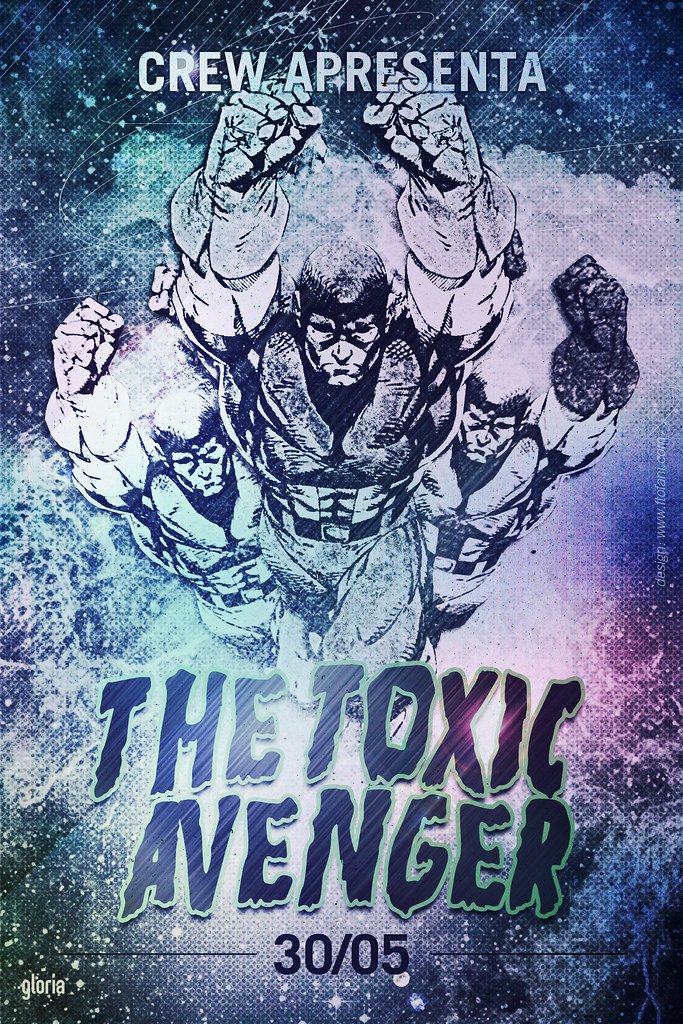
11. **The Toxic Avenger (2023)**
Prepare yourselves for a journey into the delightfully grotesque with “The Toxic Avenger” (2023). This film, like its original, promises a wild ride, and critics confirmed it delivers, noting that “viewers seeking an extremely gory, extremely silly good time won’t be disappointed,” earning it an 86% consensus. It sounds like a perfect fit for its niche, right?
But here’s the narrative “plot twist” that can be truly terrible for the unprepared: the *extremeness* of it all. The consensus doesn’t just say “gory” or “silly”; it says “extremely gory, extremely silly.” This isn’t a subtle shift; it’s a full-throttle commitment to over-the-top violence and absurdist humor that, for anyone not explicitly “seeking” that specific experience, can be a massive shock. The twist is that the film’s very identity is so aggressively niche that it actively repels those not already on board with its specific brand of chaos.
Imagine going into a film expecting a bit of campy fun, only to be hit with a narrative that revels in such graphic and prolonged acts of violence, all delivered with a wink and a smile. The “terrible plot twist” is realizing that the film’s definition of a “good time” might be vastly different from your own. It’s a narrative that doubles down on its B-movie roots, pushing boundaries of taste and decency in a way that fans adore, but others might find utterly unwatchable.
So, while the film succeeds in its mission for its target audience, its narrative decision to be *extremely* anything, especially gore and silliness, acts as a self-selecting plot twist. It tells you exactly what it is, and if you’re not in that very specific mood, or don’t appreciate that particular brand of humor and horror, then the film’s entire premise becomes a “ruining twist” that ensures you won’t be having a “good time” at all.

12. **Materialists (2025)**
Finally, let’s wrap things up with “Materialists” (2025), a film that brings together a dream team of stars like Dakota Johnson, Chris Evans, and Pedro Pascal, and is helmed by the acclaimed Celine Song. With an impressive 79% consensus, critics called it a “mature deconstruction of the conventional rom-com,” praising it for providing its stars with “meatiest material yet” and reaffirming Song as a “modern master of relationship dramas.”
Herein lies the ultimate “terrible plot twist” for unsuspecting rom-com fans. If you walk into “Materialists” expecting a lighthearted, predictable, meet-cute, fall-in-love, overcome-minor-obstacles, happily-ever-after kind of narrative, you are in for a profound shock. The twist is that the film actively subverts and dissects those very tropes. It’s not a rom-com in the traditional sense; it’s a *deconstruction* of one, which means it pulls apart the mechanics of romance and relationships with a thoughtful, often challenging, gaze.
This narrative decision, while celebrated by critics for its depth and sophistication, can be incredibly jarring for an audience seeking escapism. The “terrible plot twist” is the realization that the film isn’t going to give you the comforting, formulaic beats you might expect from a star-studded romantic comedy. Instead, it offers a rigorous, mature examination that demands more intellectual engagement than emotional fluff, potentially leaving some viewers feeling unsatisfied by its lack of conventional resolution or heartwarming ease.
So, while “Materialists” is lauded as a masterful piece of filmmaking and a brilliant take on relationship dramas, its fundamental narrative choice to “deconstruct” the rom-com genre is the plot twist that can ruin it for those who simply wanted a straightforward love story. It’s a twist of artistic ambition that, while enriching for some, can be a major letdown for others who just wanted to see Chris Evans and Dakota Johnson fall in love without all the existential baggage.
And there you have it, folks! Another six blockbusters that, in their own unique ways, delivered a plot twist so unexpected, so peculiar, or so utterly baffling that it changed the entire viewing experience. From overly swaggering remixes to painfully cringe-worthy bromances, and from extreme gore to mature deconstructions, these films prove that even with the biggest budgets and brightest stars, a single narrative decision can shift a film from potential greatness to a memorable head-scratcher. So, next time you settle in for a movie, keep an eye out—you never know when a seemingly innocent creative choice might just be the terrible plot twist waiting to ruin your cinematic ride! Keep those popcorn buckets ready, because Hollywood always has more surprises in store.” , “_words_section2”: “1997


